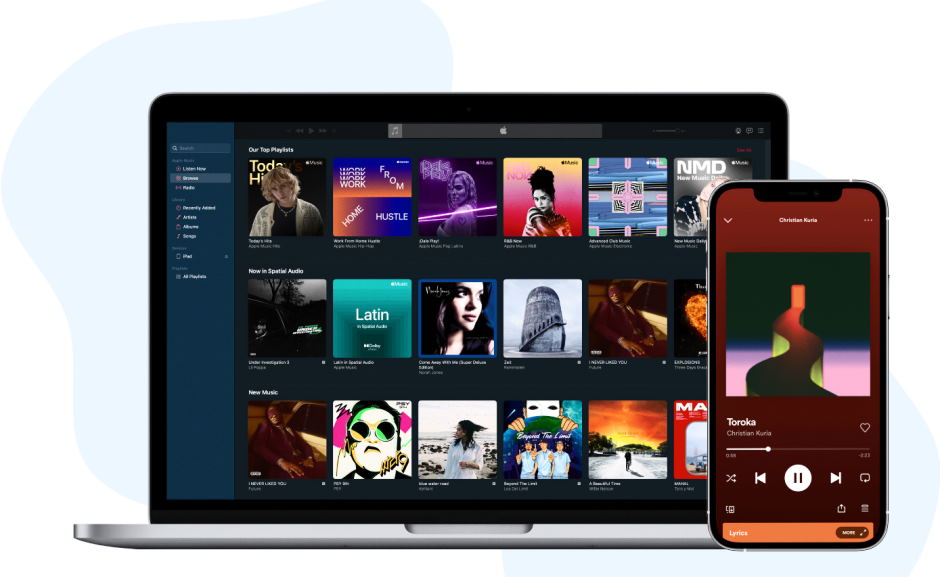There’s no denying that the music industry is changing. With the advent of digital technology, more and more artists are selling their music online. If you’re an artist looking to sell your music online, there are a few things you need to know to be successful. This comprehensive guide will cover everything from setting up your own website to promoting your music on social media. By the end of this guide, you’ll have all the tools you need to sell your music online and reach a wider audience than ever before. Let’s get started!
Selling your music online: a comprehensive guide to success
There are a number of ways to sell your music online, and each has its own benefits and drawbacks. In this comprehensive guide, we’ll take a look at the best ways to sell your music online, so you can make the most informed decision about how to reach your audience.
- Sell Your Music on iTunes
One of the easiest ways to sell your music online is through iTunes. All you need is an Apple ID and an iTunes-compatible device, such as an iPhone, iPad, or iPod touch. Once you’ve created your account, you can add your music to the iTunes Store by selecting the “Add to Library” option in iTunes and choosing the files you want to upload.
Once your music is in the iTunes Store, customers can purchase and download your songs using their Apple ID. You’ll receive 70% of the sale price for each song, and you can set your own price for each track. If you have an album of music, you can also sell it on iTunes as a single unit.
- Sell Your Music on Amazon
Another popular option for selling your music online is through Amazon. To sell your music on Amazon, you’ll need to create an Amazon Music account and add your music to the Amazon Music store. Then, like iTunes, customers will be able to purchase and download your songs using their Amazon account.

You’ll receive 65% of the sale price for each song, and you can set your own price for each track. If you have an album of music, you can also sell it on Amazon as a single unit.
- Sell Your Music on Google Play
Google Play is another option for selling your music online. To sell your music on Google Play, you’ll need to create a Google Play Music account and add your music to the Google Play Music store. Like iTunes and Amazon, customers will be able to purchase and download your songs using their Google account.
You’ll receive 70% of the sale price for each song, and you can set your own price for each track. If you have an album of music, you can also sell it on Google Play as a single unit.
- Sell Your Music on Bandcamp
Bandcamp is a popular option for independent musicians who want to sell their music online. Bandcamp allows you to set your own price for each song or album, and you can also offer your music as a free download. In addition, customers can purchase your music using their credit card or PayPal account.
You’ll receive 100% of the sale price for each song or album, minus any transaction fees. Bandcamp also offers a number of features that make it easy to promote and sell your music, such as the ability to create a custom landing page and embed your music on your website or blog.
- Sell Your Music on SoundCloud
SoundCloud is another popular option for selling your music online. To sell your music on SoundCloud, you’ll need to create a SoundCloud Pro account and add your music to the SoundCloud store. Customers can purchase your music using their credit card or PayPal account.
You’ll receive 70% of the sale price for each song, and you can set your own price for each track. If you have an album of music, you can also sell it on SoundCloud as a single unit.
- Sell Your Music on CD Baby
CD Baby is a popular option for independent musicians who want to sell their music online. CD Baby allows you to set your own price for each song or album, and customers can purchase your music using their credit card or PayPal account. You’ll receive 100% of the sale price for each song or album, minus any transaction fees.
CD Baby also offers a number of features that make it easy to promote and sell your music, such as the ability to create a custom landing page and embed your music on your website or blog.
- Sell Your Music on ReverbNation
ReverbNation is another popular option for selling your music online. You’ll need to create a ReverbNation account and add your music to the ReverbNation store to sell your music on ReverbNation. Then, customers can purchase your music using their credit card or PayPal account.
You’ll receive 80% of the sale price for each song, and you can set your own price for each track. If you have an album of music, you can also sell it on ReverbNation as a single unit.

The rise of the online music streaming market
In the US alone, paid streaming services generated $9.1 billion in revenue last year, up from $5.7 billion .
But not everyone is happy with the state of the music industry. Some musicians and music lovers argue that the rise of streaming services has made it harder for artists to make a living from their music.
There are a few key reasons for this:
- Music streaming services don’t pay very much per stream.
- The majority of streams come from free, ad-supported tiers of service, which generate even less revenue for artists.
- The way that streaming services calculate royalties often means that the most popular artists get the majority of the revenue, while lesser-known artists get very little.
- Many music fans still prefer to purchase music outright rather than stream it, which means that they’re not generating any revenue for artists through their streaming habits.
The result of all these factors is that many musicians struggle to make ends meet, even as the music industry continues to grow.
If you’re a musician or music lover, what do you think about the state of the industry? Are streaming services good for musicians? Or do they need to be reformed to better support artists? Let us know in the comments!
There’s no doubt that the music industry is in flux. As streaming services become more popular, it’s increasingly difficult for artists to make a living from their music. This is due to a number of factors, including the low per-stream royalties paid by most services, the shift towards free, ad-supported tiers of service, and the fact that many music fans still prefer to purchase music outright.
The result is that many musicians are struggling to make ends meet, even as the music industry as a whole continues to grow. This is unsustainable in the long run, and something needs to be done to support artists. Whether that means reforming the way that streaming services operate or finding new ways to monetize music, it’s clear that something needs to change.


